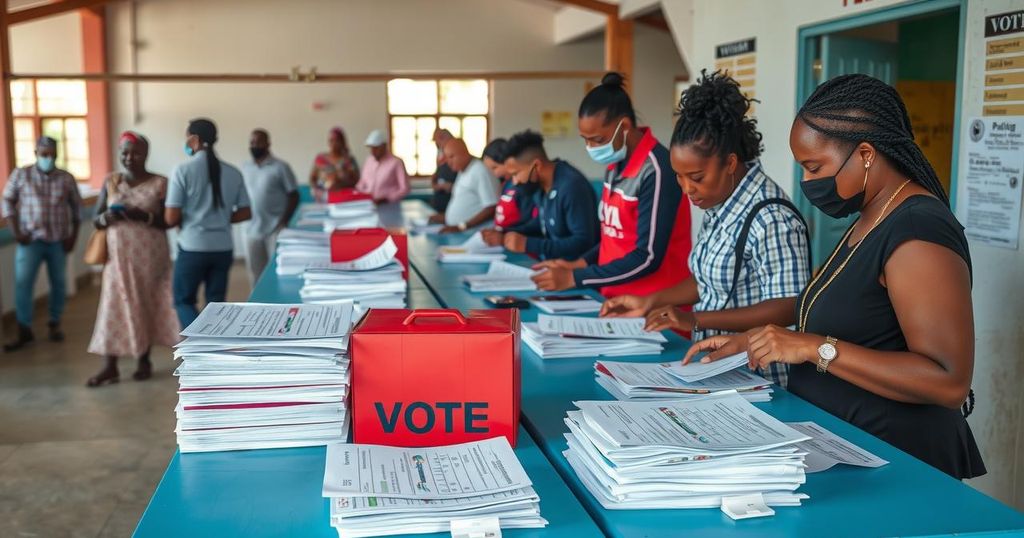Comoros Elections: Voters Select New Parliament Amid Allegations of Corruption
Voters in Comoros cast ballots for a 33-seat parliament on Sunday, following a controversial election cycle under President Azali Assoumani. Allegations of corruption and authoritarianism persist, with some opposition parties advocating for boycotts. Polls opened for 338,000 residents, with results due by January 17.
On Sunday, voters in Comoros participated in elections for the archipelago’s 33-seat parliament, amidst allegations of widespread irregularities during the prior election that led to the reelection of President Azali Assoumani. The polls opened at 8 a.m. for approximately 338,000 registered voters, with nearly 100 candidates vying for parliamentary positions, validated by the Supreme Court. Assoumani has been a dominant political figure since 1999, and there are concerns regarding his intentions to groom his son, Nour El-Fath, for succession. While some opposition factions, including Juwa, have called for a boycott, others believe participation could highlight the regime’s weaknesses. Closing polls are expected at 4 p.m., with results anticipated by January 17.
The political landscape in Comoros has been characterized by instability and allegations of authoritarianism, primarily under President Azali Assoumani, who initially took power through a coup in 1999 and has since been reelected multiple times. The electoral climate in the archipelago has been contentious, with the opposition accusing Assoumani of undermining democratic processes. The recent parliamentary election occurs against a backdrop of national discontent and rumors of dynastic succession involving Assoumani’s son, further complicating the political equation and increasing dissent among opposition parties.
The parliamentary elections in Comoros signify a crucial moment for the nation as citizens engage in a democratic process fraught with allegations of past irregularities and authoritarian practices by the current administration. The outcome of this election holds the potential to strengthen or further weaken the Assoumani regime, depending on voter participation and public sentiment regarding governance in the archipelago. As results are awaited, the political landscape remains volatile and closely monitored both locally and internationally.
Original Source: www.voanews.com




Post Comment